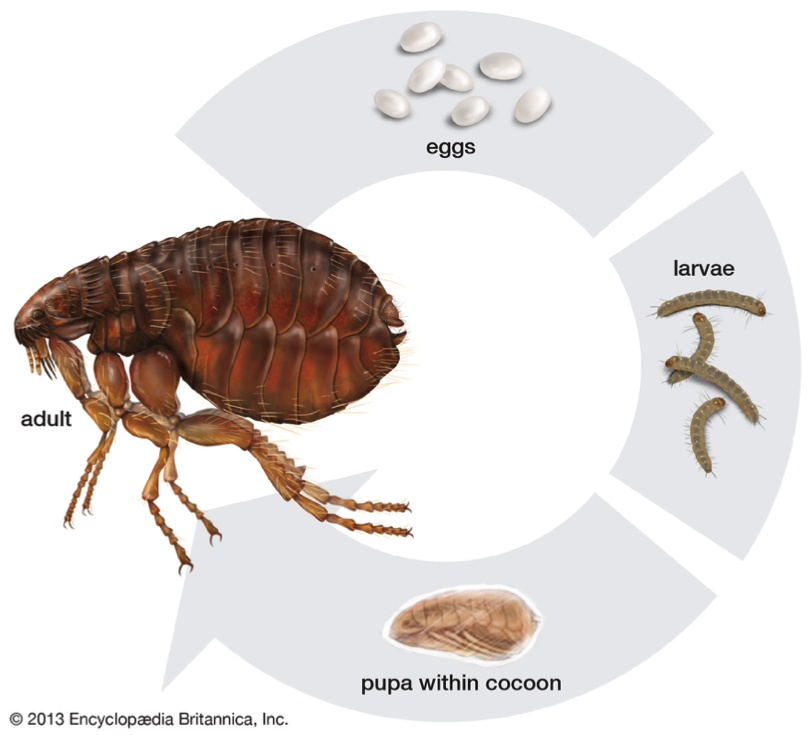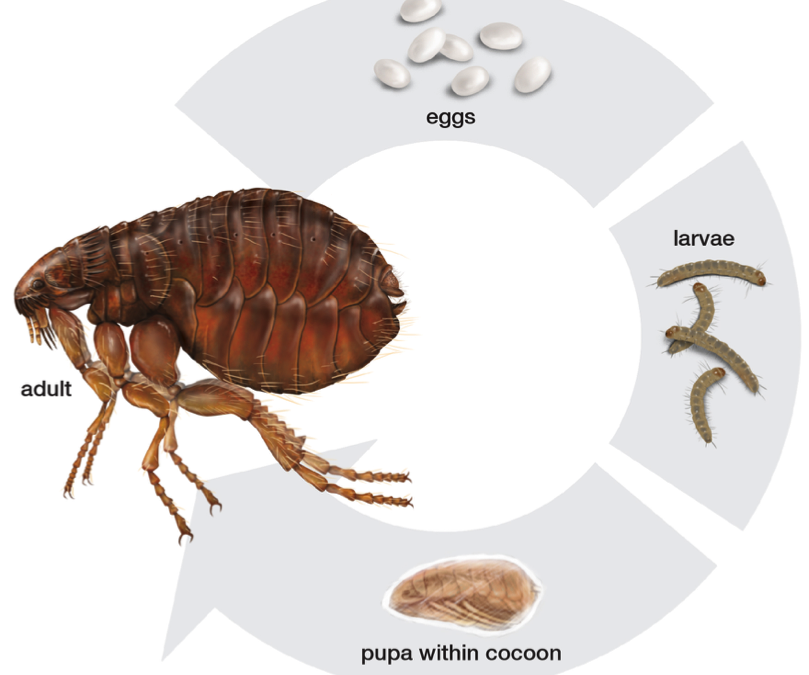Even though I recommend parasite prevention year round, this is the time of year I’m pulling ticks, fleas, and larvae off pets daily! These parasites are not just a pain for your pet, but they can transmit diseases. If a flea infestation is bad enough, I have needed blood transfusions for patients! The other problem we run into is that the number of parasite you can see on your pet (especially fleas) is only about 30% of the actual problem. Flea jump off your pet to lay eggs, so all the soft surfaces in your house are now covered in microscopic eggs…just think about settling into you bed and putting your face into your pillow and inhaling flea eggs!?!?!?!? Gross! Eggs hatch out when they feel vibration and warmth, these are signals that a new host is around. Complicating this further is that there is no flea product that kills all life stages of the flea. So, typically when you see fleas, I expect 2-3 months to pass before the problem is well controlled.
When tackling a flea infestation, remember all pets in the home, even indoor only cats, require treatment every 30 days. Talk to your lawn company and see if they can spray the yard to reduce the parasite burden- this may mean you need to keep your pets off the grass for 24-48 hours after treatment. Vacuum carpeted areas daily and take the bag or the debris outside! Those little bugs will crawl right out the your machine if you let them. Finally wash all soft surfaces and bedding possible once a week.
Ticks pose another problem….people like to remove them without help or experience! If you find a tick on your pet and you do not know how to remove it without hurting your pet (hot matches, wax, hot water, etc…) than call us and let the professionals handle it. It is very important to remove all of the ticks mouth parts to ensure there is not ongoing inflammation or transmission of disease. It is also helpful to have the tick tested to see if it is carrying diseases that can affect your pet. I will typically sent the ticks I remove home with owners so they can be sent out and tested.

Flea lifecycle
There are so many safe and effective products that are on the market that there is no reason not to use prevention. There are topical and oral versions of medications, some that last 4 weeks and others that last 8-12 weeks. There are hypoallergenic forms and flavored forms…..all of these options allow us to offer a product that you are comfortable with and will prevent disease in your pets and keep pests out of your home.
A word of caution. If you are using over the counter parasite prevention be sure it is made for the pet you are putting it on (do not use dog products on cats), the weight/ dosing is appropriate, you are buying from a reputable source (not Amazon), and that you reading the warning labels completely- do not use it if you pet is on medication or has a medical condition that is contraindicated. If your pet does become sick from the medication be sure you have the packaging available and call your veterinarian or ASPCA Poison Control.



